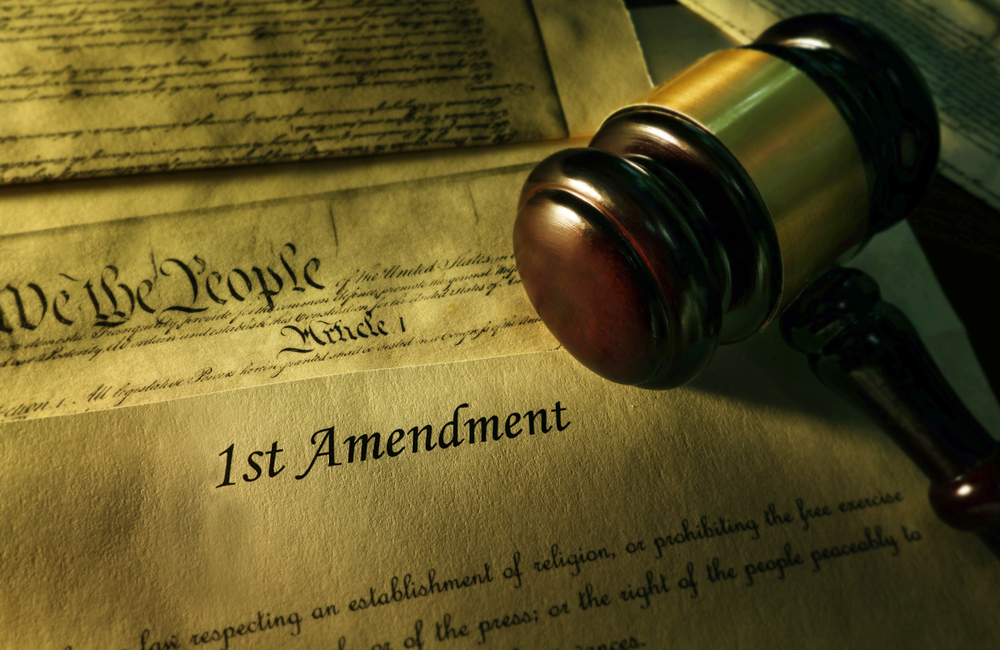In a recent nationwide study on religious liberty laws in all 50 states, Connecticut ranked 29th in best protecting the right guaranteed in the First Amendment.
Illinois claimed the top spot, followed by South Carolina and New Mexico in the 2023 Religious Liberty in the States (RLS) report — a project of the Center for Religion, Culture & Democracy (CRCD), which is an initiative of the First Liberty Institute. Meanwhile, California, New Hampshire and West Virginia finished in the bottom tier. As noted by RLS, the rankings “defy political stereotyping, as both red and blue states are at the top and bottom of the rankings.”
Each state was measured on 14 legal safeguards of religious liberty, and then given a score. Connecticut scored 41 percent out of 100 on the safeguards that included:
- an opportunity for absentee voting;
- implementing a religious freedom restoration act;
- allowing an employer exemption from health insurance contraceptive mandate;
- provisions for religious ceremonial life;
- accommodations for school-aged children;
- exemptions for marriage and wedding participation; and
- exemptions for health-care providers.
Yet most safeguards also had varying subcategories. For example, “Exemptions in Health-Care Provision” had 20, with many questions on abortion, sterilization and contraception. Aside from safeguarding “abortion refusal for individuals” and “abortion refusal not limited in medical emergencies,” Connecticut does not have protections for most of the subcategories, according to RLS.
“From the founding era to the present day, Connecticut has done a good job of protecting what many founders called ‘the sacred rights of conscience, but it could do better,’” said Mark David Hall, director of RLS, to Yankee Institute. “The most obvious protections the Constitution State should adopt is to ensure that no medical professional is ever forced to choose between their religious or moral convictions and their profession.”
Last summer, Gov. Ned Lamont signed new laws expanding abortion access that protect medical providers from adverse actions taken by another state; allow pharmacists to prescribe birth control; increase access to reproductive care by college students at public institutions of higher education; and protect the privacy of patient health data online. The General Assembly also considered a bill that would have provided a $2 million fund to defray transportation, lodging and contraceptive costs for non-state residents seeking an abortion in Connecticut — but it died in session.
Connecticut has been considered a “safe harbor” for abortion rights, codifying the practice in state law in 1990. However, only several years later, the state became the first to enact a law protecting religious freedom, predating the national Religious Freedom Restoration Act of 1993, which stated that “governments should not substantially burden religious exercise without compelling justification.” For pro-life advocates (who tend to be Christians), abortion is antithetical to the belief that life begins at conception; thus, the underlying tensions between pro-choice legislation and religious freedom proponents.
While a 2022 WTNH-News 8 poll concluded abortion as a “nuanced” issue, 70 percent of Connecticut residents identify as Christian, according to Pew Research Center; however, between 2007 and 2014 (when the study was last conducted), state residents’ belief in God, importance of religion in one’s life, attendance at religious services, frequency of prayer, among other categories, have all declined. Religiosity nationwide is experiencing similar downward trends with Americans becoming “less likely to identify with an organized religion,” according to a Pew Research Center report released in December 2023.
It is an understatement to say that religion — particularly Christianity — influenced the founding of several American colonies (like Massachusetts, Rhode Island, Maryland and Pennsylvania) and United States law. Which begs the question: if religious practice for all faiths and denominations are declining in Connecticut and across the country, how will it impact future legislation and protection of religious liberty?
God only knows.

